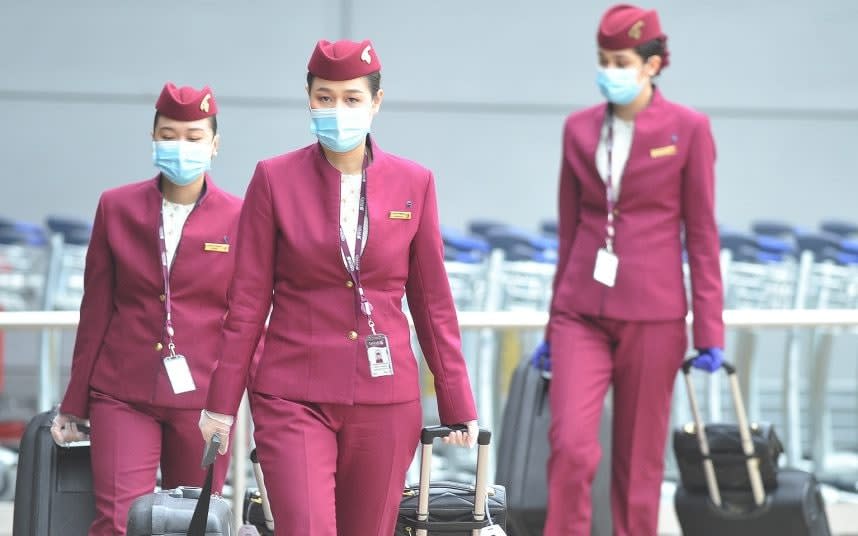Flying is safer than other forms of public transport, says Covid-19 adviser to Government

Flying in a plane is the safest form of public transport, says a professor who advised the Department for Transport (DfT).
Ashley Woodcock, professor of respiratory medicine at Manchester University, said plane travel was disciplined in a way that the “anarchic” milling around in trains or the Underground was not.
“Travel in planes is a very disciplined environment. People form queues, they sit facing the same way. It is safer than other forms of public transport because of all the discipline in airports and airlines,” said Professor Woodcock, who led an expert group that advised the DfT and industry.
This had been boosted by measures to ensure airports and planes were “super clean” through hand gel stations throughout airports, social distancing of two metres where possible and compulsory face coverings to mitigate contact under two metres.
“I think that planes are probably the safest form of public transport compared with the anarchy on the tube with people milling around,” added Professor Woodcock.
He also noted that there was a misapprehension about the air in planes which, in fact, was replaced every three to five minutes by being put through a filter. “The air in planes is incredibly clean,” he said.
Although temperature screening devices in airports acted as a disincentive to people who might be ill, Professor Woodcock said the evidence suggested they were ineffective.
They would miss people with Coronavirus who were infectious but did not have a temperature and could lead to major delays and problems when picked up people with colds. “Are you going to ban children with a cold in December,” he asked.
DfT guidance has recommended airlines extensively clean aircraft, increase the availability of handwashing facilities and hand sanitiser and reduce face-to-face interactions between staff and passengers. Staff are also being equipped with visors and plastic gloves.
It has also proposed that travellers should check in all baggage before boarding flights because this would minimise its contact with passengers and speed up embarkation and leaving the plane.
Other advice for passengers includes wearing face coverings in airports and remaining seated as much as possible during flights. People who fail to wear masks or coverings could be stopped from embarking.

